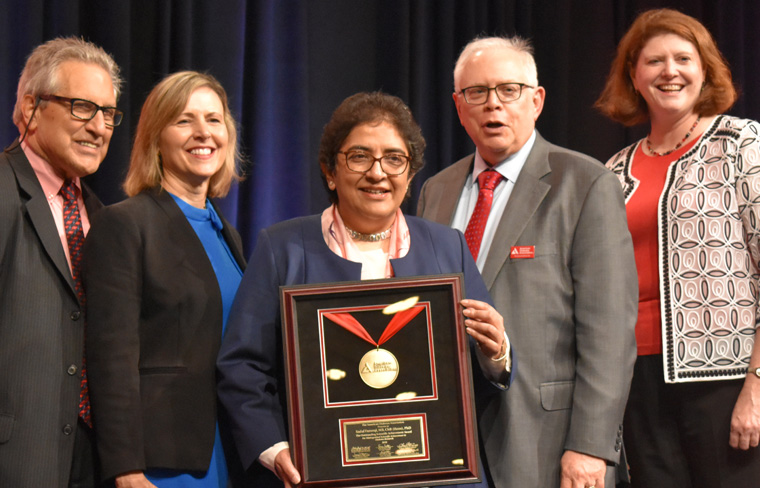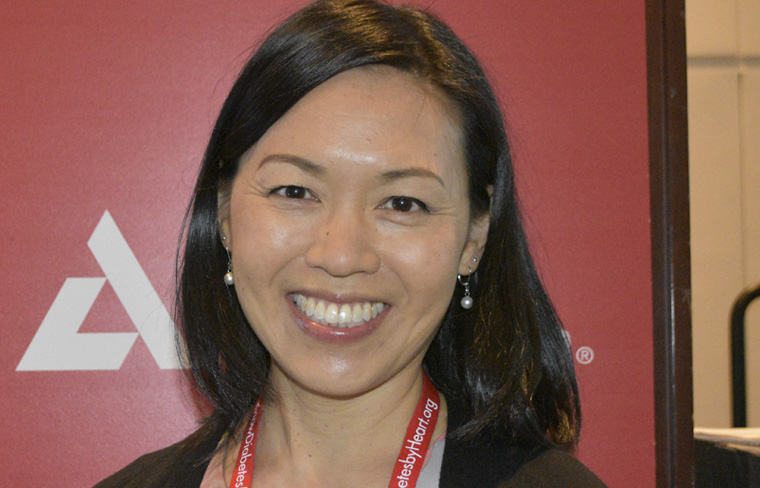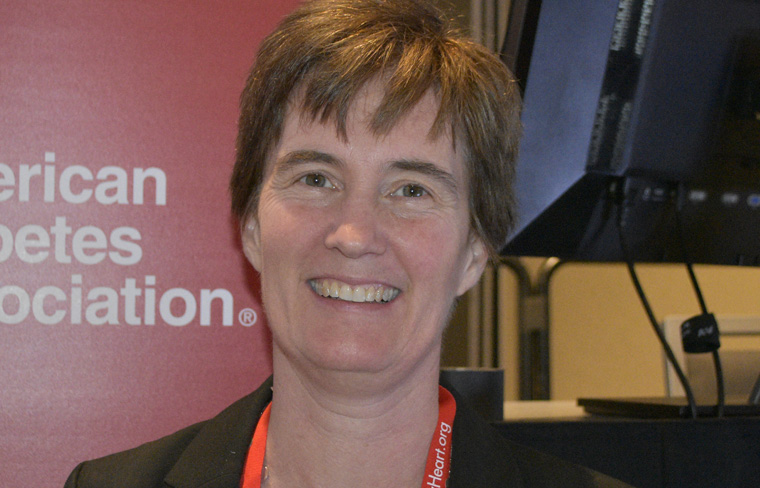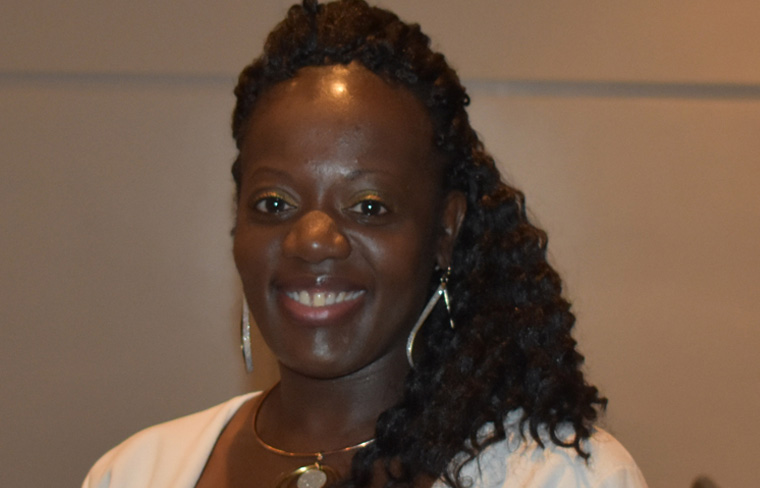-
Session preview: Researchers investigating communication between beta-cell organelles
New evidence suggests that cellular organelles such as endoplasmic reticulum, mitochondria, and lysosomes are active communicators using newly recognized intra- and intercellular channels. A group of researchers, including Amelia K. […]
-
Experts debate delivery time in women with gestational or preexisting diabetes
Monday afternoon at the Scientific Sessions, Chloe Zera, MD, MPH, and Howard Berger, MD, debated the question of whether all pregnant women with gestational diabetes or preexisting diabetes should be induced by 38 weeks. Dr. Zera argued in favor of induction and Dr. Berger made the case against it.
-
Outstanding Scientific Achievement Award lecturer: Genetics play a key role in obesity, thinness
Thin people are thin because they have less of the genetic variants that make people obese, not because they are morally superior, according to Sadaf Farooqi, MB, ChB (Hons), PhD (center), who presented the Outstanding Scientific Achievement Award lecture on Monday at the Scientific Sessions.
-
Studies show benefit of CGM adoption in pediatric population
Monday’s Joint ADA/JDRF Symposium posed the question: Is CGM in pediatric diabetes ready for prime time? The answer is a resounding yes, according to David M. Maahs, MD, PhD.
-
ADA Special Interest Group tackles device technology dilemmas
Choosing, prescribing, and assisting patients with medical devices can be a challenge for diabetes clinicians, according to Jenise C. Wong, MD, PhD. On Monday at the Scientific Sessions, the ADA’s Diabetes Technology Special Interest Group addressed some of those challenges and sponsored a panel discussion looking at ways the group can help ADA members tackle…
-
Studies provide long-term safety, efficacy data for artificial pancreas use
Sue A. Brown, MD, was among the researchers who presented study results on Sunday demonstrating the safety and efficacy of artificial pancreas systems for insulin delivery and glycemic control. The results signal that this long-discussed technology is moving closer to approval and widespread use.
-
Experts discuss mealtime and monitoring tips for parents of pediatric type 1 diabetes patients
During a Monday morning symposium at the Scientific Sessions, a panel of pediatric diabetes experts, including Nana-Hawa Yayah Jones, MD, discussed the challenges parents and providers face when trying to manage the dietary and nutritional needs of children with type 1 diabetes.
-
Nonsteroidal solution may be key to aldosterone-blocking therapy for diabetic kidney disease
After 20 years of failure in studies on diabetic kidney disease (DKD), recent trial results showing reduced renal outcomes with SGLT2 inhibitors were only the beginning of the good news for DKD patients, according to Peter Rossing, MD, DMSc.
-
Gut-based interventions for diabetes move closer to clinical reality
Suzanne Devkota, PhD, and David Mangelsdorf, PhD, are two of the presenters who will discuss the latest findings on gut metabolism during Tuesday’s symposium “Go With Your Gut—Intestinal Regulation of Metabolism,” which begins at 7:30 a.m. in S-208 (South, Level 2). They preview the session in this ADAMeetingNews.org exclusive.
-
Composition of adipose tissue may point to new treatment pathways
Emerging research suggests that the composition of adipose tissue may be more important in terms of insulin sensitivity and personal diabetes risk than the quantity of fat an individual carries. C. Ronald Kahn, MD, Yu-Hua Tseng, PhD, and Bart Deplancke, PhD, will discuss the latest research during the Tuesday session “Adipose Tissue at the Single-Cell…









